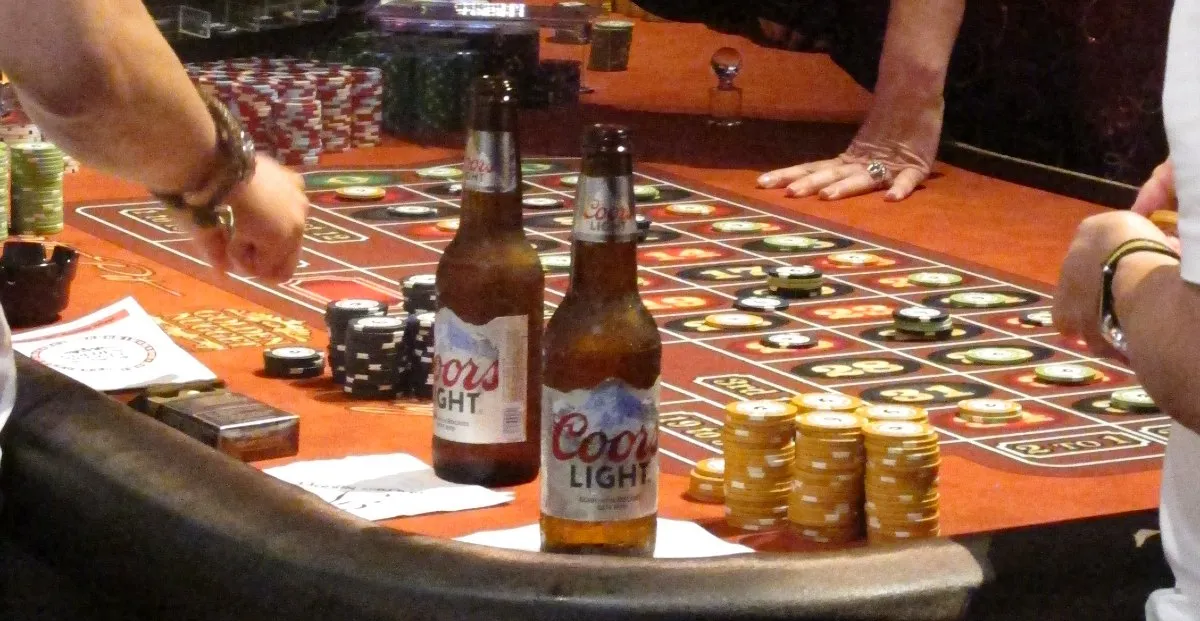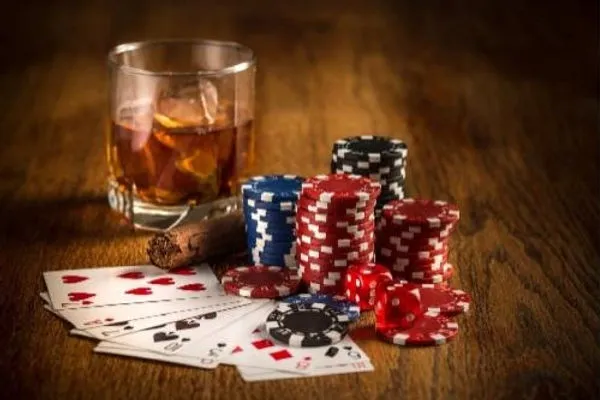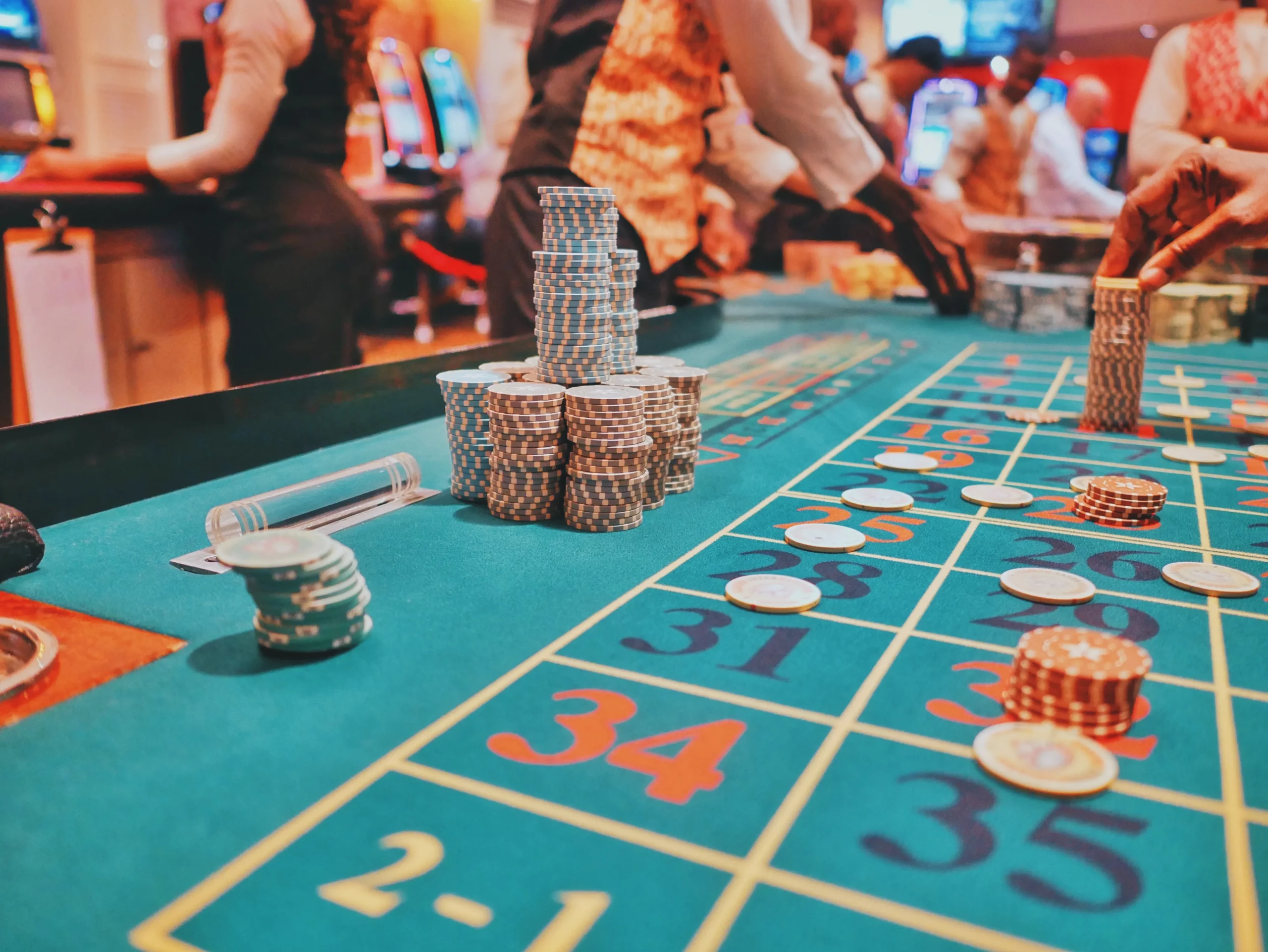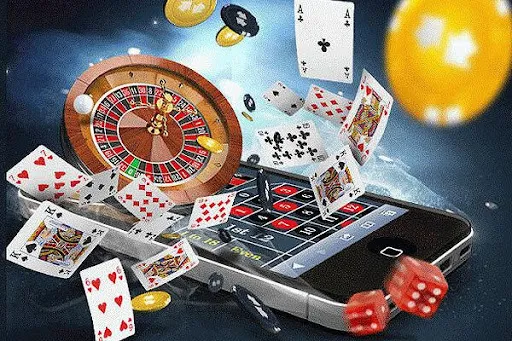
The Impact of Drinking on Casino Gambling Exploring the Relationship
As the famous saying goes, “What happens in Vegas, stays in Vegas.” This statement may hold true for many people, but one thing that definitely leaves a lasting impact is the combination of drinking and casino gambling. While both activities are often seen as a form of entertainment, it’s important to understand the potential consequences that can arise when they are combined. In this article, we will delve into the world of casino gambling and drinking, exploring the various aspects of this relationship and the effects it can have on individuals and society as a whole.
1. The Link Between Alcohol and Gambling

Alcohol and gambling have been closely linked for centuries. In fact, many casinos offer free drinks to their customers in order to keep them playing at the tables or slot machines. At first glance, it may seem like a harmless gesture, but there is a deeper reason behind this practice. Studies have shown that alcohol consumption can increase impulsive behavior and decrease inhibitions, leading to riskier decision-making and potentially more gambling.
The Science Behind Alcohol’s Effect on the Brain
To better understand the link between alcohol and gambling, it’s important to understand the science behind alcohol’s effect on the brain. When consumed, alcohol affects the levels of neurotransmitters in the brain, specifically dopamine and serotonin. These two chemicals play a crucial role in regulating our mood and behavior.
When alcohol is consumed, dopamine levels rise, creating a sense of pleasure and reward. This is what leads to feelings of relaxation and euphoria, as well as the loss of inhibitions. On the other hand, serotonin levels decrease, which can lead to impulsive behavior and a lack of concern for potential consequences.
The Connection Between Alcohol and Risk-Taking Behavior
As mentioned earlier, alcohol consumption can lead to a decrease in inhibitions and an increase in impulsivity, which can ultimately lead to risk-taking behavior. This is why many people feel more confident and willing to take bigger risks when they are under the influence of alcohol.
In terms of gambling, this means that individuals may be more likely to make larger bets or play longer than they normally would. This can result in both financial and emotional consequences, as individuals are less concerned about the potential negative outcomes of their actions.
2. The Impact of Drinking on Decision-Making
In addition to increasing impulsive and risky behavior, alcohol consumption can also have a significant impact on decision-making. As mentioned earlier, alcohol affects the levels of neurotransmitters in the brain, which can lead to impairments in cognitive functioning.
How Alcohol Impairs Cognitive Functioning
Alcohol can impair various aspects of cognitive functioning, including memory, attention, and judgment. This can have a significant impact on decision-making, as individuals may struggle to evaluate risks and consider potential consequences before making a choice.
Furthermore, excessive alcohol consumption can also lead to blackouts, where individuals have no recollection of their actions while under the influence. This can be particularly dangerous in a casino setting, as individuals may not even realize the extent of their gambling losses until it’s too late.
The Role of Expectations in Decision-Making
Another important factor to consider is the role of expectations in decision-making. In a study by Enoch Gordis, it was found that individuals who believed that alcohol would enhance their performance actually performed better than those who believed it would impair them. This is known as the “expectancy effect” and can have a significant impact on decision-making in a casino setting.
For example, someone who believes that drinking will make them luckier at the slot machines may continue to consume alcohol in order to maintain that belief, even if it is not based on reality. This can lead to further impulsive and risk-taking behavior, as well as potentially increased financial losses.
3. The Relationship Between Alcohol and Problem Gambling

While the majority of people who gamble do so for entertainment purposes, there is a small percentage of individuals who develop a gambling problem. According to the National Council on Problem Gambling, approximately 2 million adults in the United States meet the criteria for pathological gambling, with an additional 4-6 million being considered problem gamblers.
The Link Between Alcohol and Problem Gambling
Research has shown that there is a strong link between alcohol consumption and problem gambling. In fact, one study found that 73% of problem gamblers reported using alcohol while gambling, compared to only 14% of non-problem gamblers.
Alcohol can be a contributing factor to problem gambling in several ways. As discussed earlier, it can lead to impulsive and risky behavior, which can escalate into problem gambling if not controlled. Additionally, alcohol can also serve as a coping mechanism for individuals struggling with gambling addiction, as it can temporarily alleviate feelings of stress and anxiety related to their gambling behavior.
The Impact of Co-Occurring Disorders
It’s also worth noting that problem gambling and alcohol abuse often co-occur with other mental health disorders. This is known as a dual diagnosis or co-occurring disorders, and it can make treatment even more challenging.
In a study by the National Epidemiologic Survey on Alcohol and Related Conditions, it was found that individuals with a history of problem gambling were more likely to have co-occurring disorders such as depression, anxiety, and substance abuse. This highlights the complex relationship between alcohol, gambling, and mental health, and the need for a comprehensive approach to treatment.
4. Societal Impact of Drinking and Gambling
The impact of drinking and gambling goes beyond the individual level and can also have consequences on society as a whole. Let’s take a look at some of the ways in which this relationship can affect society.
Increased Crime Rates
One of the most significant impacts of drinking and gambling on society is an increase in crime rates. This is especially true for areas where there are high concentrations of casinos and bars, as well as individuals who are struggling with problem gambling and alcohol abuse.
Studies have shown that there is a direct correlation between the number of casinos in an area and the crime rate. This can be attributed to the fact that excessive alcohol consumption and gambling can lead to impulsive and risky behavior, which may result in criminal activities such as theft, fraud, and violence.
Financial Burden on Society
Another consequence of the relationship between drinking and gambling is the financial burden it places on society. Individuals who struggle with problem gambling and alcohol abuse often face financial issues, including debt, bankruptcy, and loss of employment.
This not only affects the individual but also their families and the community as a whole. In addition, the government may also bear the burden of providing resources for individuals experiencing the negative consequences of this relationship, such as treatment programs and social services.
5. Responsible Gambling: Promoting Safe and Healthy Habits
While it’s important to understand the potential negative effects of the combination of drinking and gambling, it’s also essential to promote responsible gambling practices. Here are some strategies that can help promote safe and healthy habits when it comes to alcohol and gambling.
Setting Limits
One of the most effective ways to promote responsible gambling is by setting limits. This applies to both gambling and alcohol consumption. By setting a budget for gambling and sticking to it, individuals can avoid overspending and potentially falling into a cycle of debt.
Similarly, setting limits for alcohol consumption can also help prevent excessive drinking and the negative consequences that come with it. For example, many casinos offer self-exclusion programs, where individuals can voluntarily ban themselves from entering the casino premises for a specified period of time.
Seeking Help
If you or someone you know is struggling with problem gambling and/or alcohol abuse, it’s important to seek help. There are various treatment options available, such as therapy, support groups, and medication, that can help individuals overcome these issues.
Additionally, online resources and helplines are also available for those who may not feel comfortable seeking help in person. It’s important to remember that seeking help is a sign of strength, and no one should have to face these challenges alone.
Education and Awareness
Lastly, education and awareness about the potential negative effects of the combination of drinking and gambling are crucial in promoting responsible habits. This includes educating individuals on the science behind alcohol’s effect on the brain, as well as the risks associated with problem gambling.
Casinos and bars can also play an active role by implementing responsible gambling and alcohol policies, providing resources for those in need, and promoting responsible behavior among their customers.
6. The Future of Drinking and Gambling: Advancements in Technology

As technology continues to advance, so does the world of gambling and alcohol. With the rise of online casinos and mobile apps, it’s now easier than ever for individuals to access these activities from the comfort of their own homes. While this may seem convenient, it also comes with its own set of challenges and potential consequences.
Increased Availability and Accessibility
The availability and accessibility of online gambling and alcohol has increased significantly in recent years. This means that individuals are no longer limited to physical locations and can access these activities anytime and anywhere with an internet connection.
Furthermore, online gambling and alcohol may be more appealing to certain demographics, such as younger adults, who may not feel comfortable or have the means to go to a physical casino or bar. This can lead to increased consumption and potentially problematic behaviors.
Lack of Regulation and Oversight
Another concern with online gambling and alcohol is the lack of regulation and oversight. While physical casinos and bars are subject to strict regulations and are required to implement responsible gambling and alcohol policies, online platforms may not have the same level of oversight.
This can make it easier for individuals to engage in risky behavior without any checks or balances in place. As a result, it’s essential for governments and regulatory bodies to address this issue and ensure that online gambling and alcohol platforms are held accountable for promoting responsible practices.
Conclusion: Understanding the Impact of Drinking on Casino Gambling
In conclusion, the combination of drinking and casino gambling can have significant consequences on both individuals and society as a whole. From increasing impulsive and risk-taking behavior to financial burden and crime rates, it’s important to understand the potential negative effects of this relationship.
However, with education, awareness, and responsible gambling practices, we can promote safe and healthy habits and mitigate the potential negative impacts. It’s crucial for individuals to recognize the signs of problem gambling and alcohol abuse and seek help when needed. By working together, we can create a safer and more enjoyable environment for all individuals engaging in casino gambling and drinking activities.